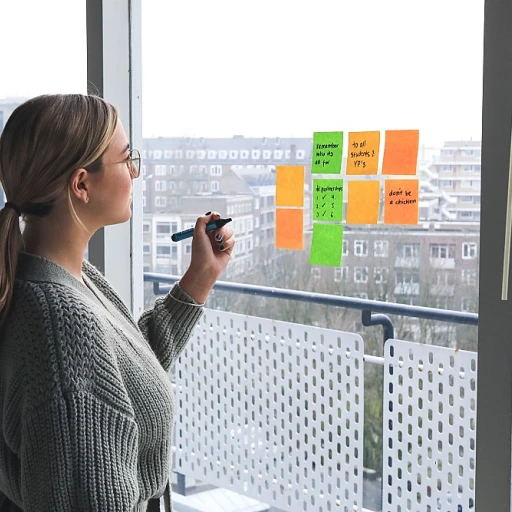Defining the Director of Development Role
Key Responsibilities of a Director of Development
The role of a Director of Development is crucial in any organization, particularly within the nonprofit sector. This position primarily revolves around the strategic planning and execution of fundraising initiatives. The director job is multifaceted, involving collaboration with both internal teams and external parties like donors and board directors. A fundamental aspect of the director role is to enhance the organization's fundraising capabilities. This responsibility encompasses identifying new fundraising opportunities, cultivating relationships with major donors, and ensuring that fundraising goals align with the organization's mission. The development director will work closely with the executive director to create compelling proposals and presentations for potential donors, leveraging their experience and skills to secure major gifts and grants.Integrating Fundraising Strategies and Team Leadership
This position requires an individual with astute management and fundraising acumen. A director must possess excellent organizational skills to oversee special events, manage donor software, and guide the team in achieving the nonprofit's objectives. Empowering and leading a cohesive team is crucial, as the success of fundraising endeavors relies heavily on productive team dynamics. Furthermore, the Director of Development is expected to drive collaboration across departments. This includes coordinating with the board directors to strategize on top fundraising activities and effectively communicate within the organization to synchronize various efforts. The director will also play a significant role in the executive search process when expanding the development team, ensuring the hiring of professionals with the right qualifications.Qualifications and Experience Needed
To effectively execute the key responsibilities outlined above, firms seek candidates who usually hold a bachelor degree in relevant fields such as business administration or nonprofit management. Additionally, a strong background in nonprofit job positions that involve development and strategic planning is often desired. Organizations value candidates with proven experience in donor management and fundraising operations. The ideal candidate should possess not only technical proficiency in using donor management software but also an innate ability to build lasting relationships with both large and small donors. Effective communication and leadership qualities are non-negotiable, as they are central to rallying the team and fostering a culture of innovation and excellence within the development department. For those interested in delving deeper into the intricacies of this role, exploring detailed job description samples and responsibilities can provide additional insights. Navigating the path to a school nurse position might seem unrelated at first, yet it offers valuable perspectives on professional transitions within specific fields.Essential Skills and Qualifications
Key Competencies for Development Leadership
When seeking a Director of Development, it's crucial to identify the essential skills and qualifications that will drive success in this role. The right candidate should possess a blend of strategic thinking, leadership, and a deep understanding of fundraising dynamics.
Strategic Vision and Planning
A Director of Development must have a strategic vision that aligns with the nonprofit's mission. This involves setting realistic fundraising goals and creating a roadmap to achieve them. Experience in developing and executing strategic plans is a key responsibility, ensuring that the organization meets its financial targets.
Fundraising Expertise
Expertise in fundraising is non-negotiable. The director should have a proven track record in securing major gifts and managing donor relationships. Familiarity with special events, donor management software, and the ability to engage with top donors are crucial skills.
Leadership and Team Management
Leadership skills are vital for managing the development team and collaborating with the board of directors. The director will need to inspire and guide the team towards achieving fundraising objectives. Effective management involves not just leading but also mentoring team members to enhance their capabilities.
Communication and Interpersonal Skills
Strong communication skills are essential for articulating the nonprofit's mission and needs to potential donors and stakeholders. The ability to build and maintain relationships with donors, board members, and the executive team is a key component of the role.
Educational Background
While a bachelor's degree is often required, the focus should be on relevant experience and a demonstrated ability to lead successful fundraising initiatives. The combination of education and practical experience will equip the director to handle the complexities of the job.
In summary, hiring the right Director of Development involves identifying a candidate with a strategic mindset, strong leadership abilities, and a deep understanding of the nonprofit landscape. These competencies are essential to ensure the organization thrives and meets its fundraising goals.
Crafting an Effective Job Description
Key Elements in a Job Description
An effective job description for a Director of Development position is crucial to attract the right candidates. It serves as the foundation for setting expectations and aligning the goals of the organization with potential candidates. Here's what to consider:- Clear Role Definition: The description should clearly outline the primary responsibilities and duties of the director. Key responsibilities in fundraising, donor relationship management, and strategic development should be highlighted. This provides a roadmap for what is expected, aligning with the broader goals of the organization.
- Essential Skills and Qualifications: Make sure to list the essential skills and qualifications that a candidate must possess. This generally includes expertise in leadership and management, the ability to drive major gift strategies, and excellent communication abilities. A bachelor degree in a relevant field is often required along with proven experience in nonprofit organizations.
- Highlighting the Organization's Mission: Contextualizing the director job within the broader mission and values of the organization is critical. This helps potential candidates understand how they can contribute to the organization’s success and align their aspirations with its objectives.
- Experience Requirements: Specify the level of experience necessary, such as experience in managing a development team, handling special events, or utilizing software for donor management. Emphasizing past achievements in similar roles can guide candidates in considering if they can meet the fundraising goals and expectations.
- Important Qualities: Nonprofit job descriptions should emphasize the personal qualities necessary for success. This includes adaptability, creativity in engaging with donors, and strategic thinking. It’s important to convey that this role requires ongoing interaction with board directors and executing tasks in collaboration with the executive team.
- Organization-Specific Details: Tailor the description to include any organization-specific aspects, such as the preferred management style, or the necessity of working closely with the board of directors. This creates a more relatable picture for the candidate.
Challenges in Hiring for Development Leadership
Overcoming Hurdles in Finding the Right Development Leader
Hiring a director of development presents unique challenges that require strategic planning and a clear understanding of the role. The process is not just about finding someone with the right qualifications, but also someone who can align with the organization's mission and drive fundraising success.
One of the key challenges is identifying candidates who possess both the technical skills and the leadership qualities necessary for the role. A development director must be adept in fundraising, donor management, and strategic planning, all while leading a team towards achieving ambitious fundraising goals. This requires a blend of experience and personal attributes that are not always easy to find.
Another significant hurdle is the competitive nature of the nonprofit job market. With many organizations vying for top talent, crafting an appealing job description becomes crucial. The description should clearly outline the key responsibilities and expectations, while also highlighting the unique aspects of the organization that make it an attractive place to work.
Moreover, organizations often face challenges in aligning the expectations of the board of directors with the realities of the job market. Boards may have high expectations for a candidate's experience and fundraising capabilities, sometimes without a full understanding of the current talent landscape. This can lead to prolonged executive search processes or settling for less-than-ideal candidates.
To navigate these challenges, it's essential to have a well-defined recruitment strategy. This includes leveraging job boards, networking within the nonprofit community, and possibly engaging executive search firms specializing in development roles. Additionally, considering candidates with a bachelor degree in relevant fields and a track record in major gift fundraising or special events can help in identifying strong contenders.
Ultimately, the goal is to find a development director who not only meets the job description but also brings a passion for the mission and a vision for the future of the organization. By addressing these challenges head-on, organizations can enhance their chances of securing a development leader who will drive their mission forward.
Interviewing and Assessing Candidates
Evaluating Leadership Potential and Strategic Alignment
Interviewing candidates for the Director of Development position involves more than just matching skills and qualifications from their resumes. It is crucial to assess the candidate's ability to align with the nonprofit organization's mission and goals. This involves:- Gauging their understanding and experience with strategic fundraising initiatives.
- Evaluating their past success in managing development teams and working with major donors.
- Assessing how effectively they can collaborate with the board of directors and executive leadership, such as the executive director, to support overarching organizational objectives.
Understanding Donor Engagement and Relationship Management
A prospective development director must possess an exceptional capacity to engage with donors and nurture these relationships, which are vital to achieving fundraising goals. During the interview process, explore:- How they have previously coordinated donor engagement strategies, including special events and major gift campaigns.
- Their experience with donor management software, and how they leverage such tools to maintain donor relations effectively.
- Their ability to innovate and tailor engagement approaches to fit the specific needs and culture of the nonprofit.
Demonstrating Adaptability and Problem-Solving Skills
Another critical aspect of the interview process is understanding how candidates adapt to challenges and make key decisions under pressure. Consider asking:- How they have navigated setbacks in development strategies in past roles.
- Examples of creative solutions they've implemented to overcome financial or operational hurdles.
- Their approach to integrating new fundraising technologies or methodologies within the organization.
Ensuring Cultural Fit and Shared Values
Finally, aligning the candidate with the organization's ethos and culture is as important as their professional competencies. Evaluate:- How they perceive the nonprofit's mission and values, and their readiness to embody these in their role development.
- Their willingness to work collaboratively with the team to achieve shared fundraising objectives.
- Their vision for the role and how it integrates with the broader development strategy at the organization.
Onboarding and Retention Strategies
Successful Integration and Retention Approaches
Onboarding and retaining a Director of Development is paramount to the success of any nonprofit organization. Once you have identified the individual whose skills best match the role development requirements, it's crucial to focus on effective strategies to integrate them into your team and ensure they remain committed to your mission. One key responsibility during onboarding is to provide a comprehensive introduction to your organization. This should include clarifying the director job expectations, detailing the nonprofit’s fundraising goals, and introducing the donor management software used to track and streamline fundraising efforts. It’s also important to familiarize the new director with special events procedures and clarify the expectations for achieving major gift targets. In reinforcing what was emphasized during the interview stages, ensure the new development director has a clear understanding of their role in the executive team and how they interact with the executive director. Providing a well-crafted job description can aid in achieving this clarity. To further enhance retention:- Foster a culture of collaborative management by encouraging regular involvement and communication with the board directors.
- Provide opportunities for the development director to enhance their skills through training programs and workshops.
- Recognize and celebrate major achievements, such as successful donor engagements or achieving fundraising milestones.
- Facilitate networking opportunities within the nonprofit sector to broaden relationship-building possibilities and gain insights into emerging fundraising trends.












